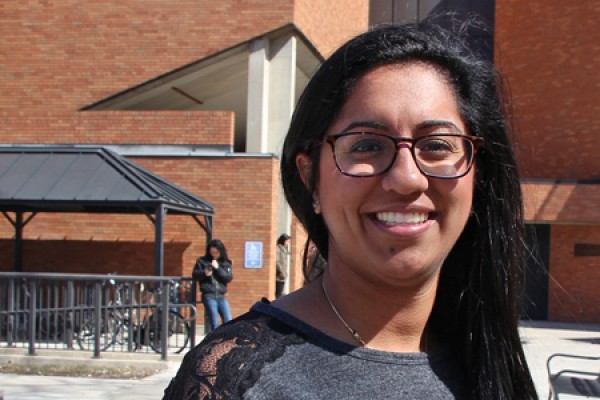 Windsor Law student Maya Kanani received an award for Academic Integrity Advocacy after producing a research project on contract essay mills.
Windsor Law student Maya Kanani received an award for Academic Integrity Advocacy after producing a research project on contract essay mills.
It drives Maya Kanani nuts to see students get away with cheating.
“Cheating devalues your education and the value of your degree,” says the second-year Windsor Law student.
Some of the toughest-to-detect cheating is facilitated by essay mills, which crank out papers tailored to students’ course requirements. Because the writing is original, it can fool specialized plagiarism detection software.
“The companies selling these services hide behind disclaimers saying the work is only to guide students,” Kanani says. “But their website will note user won’t get caught. They know that it’s wrong, but they don’t care.”
As part of a pro-bono project for the International Center for Academic Integrity, she and University of Ottawa law student Megan Jamieson research into the legality of essay mills. Their work earned them an award for Academic Integrity Advocacy at the center’s annual conference, February 27 and 28 in Vancouver.
After exploring the possibility of claims of fraud or negligence against contracted essay writers, the researchers landed on drafting model legislation. They will be determining next best steps for Ontario, Canada, and other jurisdictions.
“We have to come up with strategies to find this type of cheating,” says Kanani. “We produced a rough draft of a legal memo, and the next step is to make it worthy of publication.”
Although their six-month project through Pro Bono Students Canada has concluded, she plans to remain active on the file. The award helped validate that decision.
“It was cool to see the work we had done was meaningful,” she says. “I learned how to do legal research, and maybe it will help shape a future law.”
